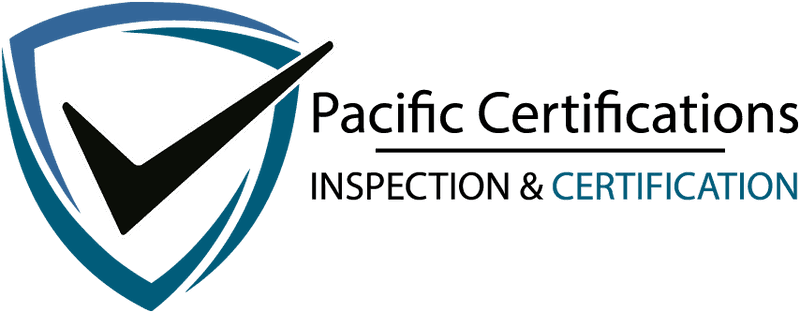ISO Certifications for Corporate Travel Services Businesses, Requirements and Benefits
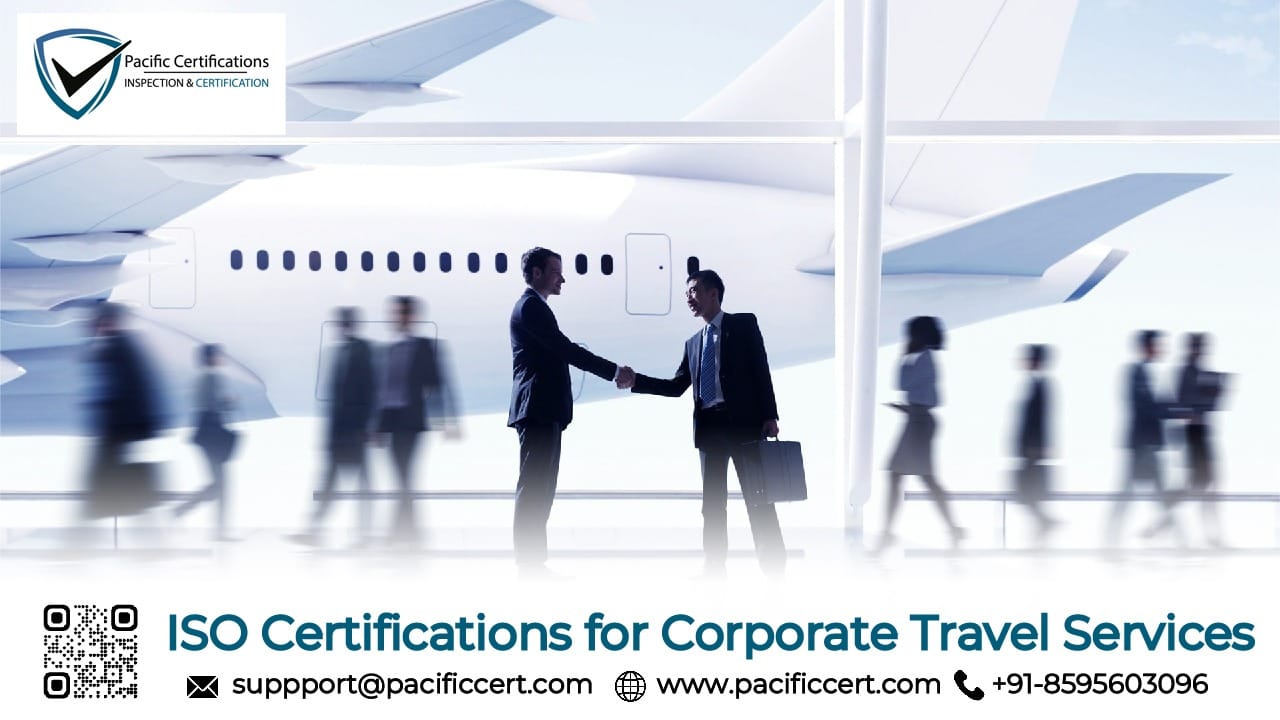
ISO Certifications for Corporate Travel Services
In today’s globalized business world, corporate travel plays a pivotal role in ensuring companies stay connected & competitive. However, with increased travel comes added complexities—ensuring quality, safety and sustainability, while also managing operational risks and customer satisfaction. This is where ISO certifications for corporate travel services become a game-changer.
ISO standards are globally recognized benchmarks that help businesses enhance the quality of their processes and services. For corporate travel services, these standards provide a structured framework for addressing key aspects such as customer satisfaction, information security, environmental impact, and risk management.
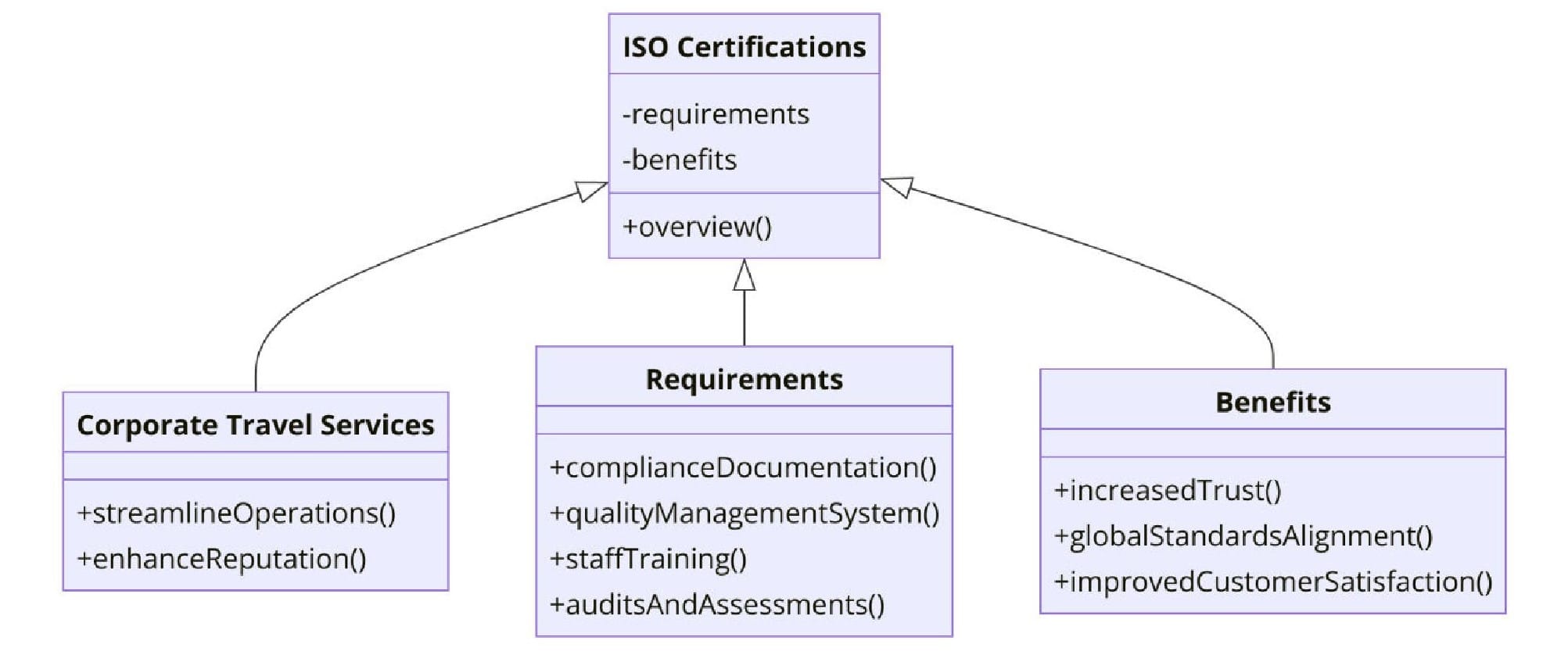
The travel industry faces unique challenges, such as fluctuating market dynamics, heightened customer expectations, and compliance with regulations. ISO certifications address these challenges by aligning processes with globally accepted best practices, ensuring services are delivered efficiently and responsibly.
ISO standards are voluntary, but companies that obtain certification demonstrate their commitment to quality & safety—key attributes that customers and stakeholders prioritize when choosing corporate travel services.
Looking to enhance the quality, security, and sustainability of your corporate travel services? Contact us at [email protected] or call +91-8595603096 today for ISO certification assistance.
Applicable ISO Standards for Corporate Travel Services
For corporate travel services, several ISO standards can be implemented to meet industry expectations and enhance service delivery. Below are the key ISO certifications applicable:
1. ISO 9001: Quality Management System (QMS): ISO 9001 is the most widely recognized standard for quality management. It ensures corporate travel services maintain consistent quality, efficient workflows, and customer satisfaction.
2. ISO 27001: Information Security Management System (ISMS): Protecting client data and sensitive travel information is critical for corporate travel services. ISO 27001 provides a robust framework for managing and securing information assets.
3. ISO 14001: Environmental Management System (EMS): With growing concerns about climate change and sustainability, ISO 14001 helps corporate travel services reduce their environmental footprint by managing resources responsibly and implementing sustainable practices.
4. ISO 45001: Occupational Health and Safety (OH&S) Management System: ISO 45001 ensures the health and safety of employees and travelers by identifying and mitigating risks associated with travel-related services.
5. ISO 31000: Risk Management: This standard is crucial for identifying, assessing, and mitigating risks in corporate travel services, from logistical challenges to regulatory compliance.
6. ISO 20121: Sustainable Event Management: For organizations that manage corporate events alongside travel, ISO 20121 focuses on integrating sustainability into event planning and execution.
7. ISO 22301: Business Continuity Management System (BCMS): Corporate travel services must ensure uninterrupted services even during crises. ISO 22301 provides a framework for ensuring business continuity during disruptions.
8. ISO 26000: Social Responsibility: ISO 26000 emphasizes ethical business practices and social responsibility, ensuring travel services operate transparently and responsibly.
Click here to find out more applicable standards to your industry
At Pacific Certifications, we specialize in providing certification services to help your organization achieve ISO compliance. Whether you need ISO 9001 for quality management or ISO 27001 for information security, our experienced team conducts comprehensive audits and guides you through the certification process.
As an internationally accredited certification body, we ensure a smooth and transparent certification journey. Our auditors bring industry-specific expertise, enabling your organization to align its corporate travel services with the highest international standards.
Pacific Certifications is committed to helping you unlock the full potential of ISO certifications by fostering a culture of continuous improvement and excellence.
Ready to align your travel operations with international ISO standards? Contact Pacific Certifications at [email protected] or call +91-8595603096 for a seamless certification process.
Requirements of ISO Certifications for Corporate Travel Services
Below is a breakdown of the key requirements for each ISO standard applicable to corporate travel services. Understanding these requirements will help organizations align their operations with globally recognized best practices.
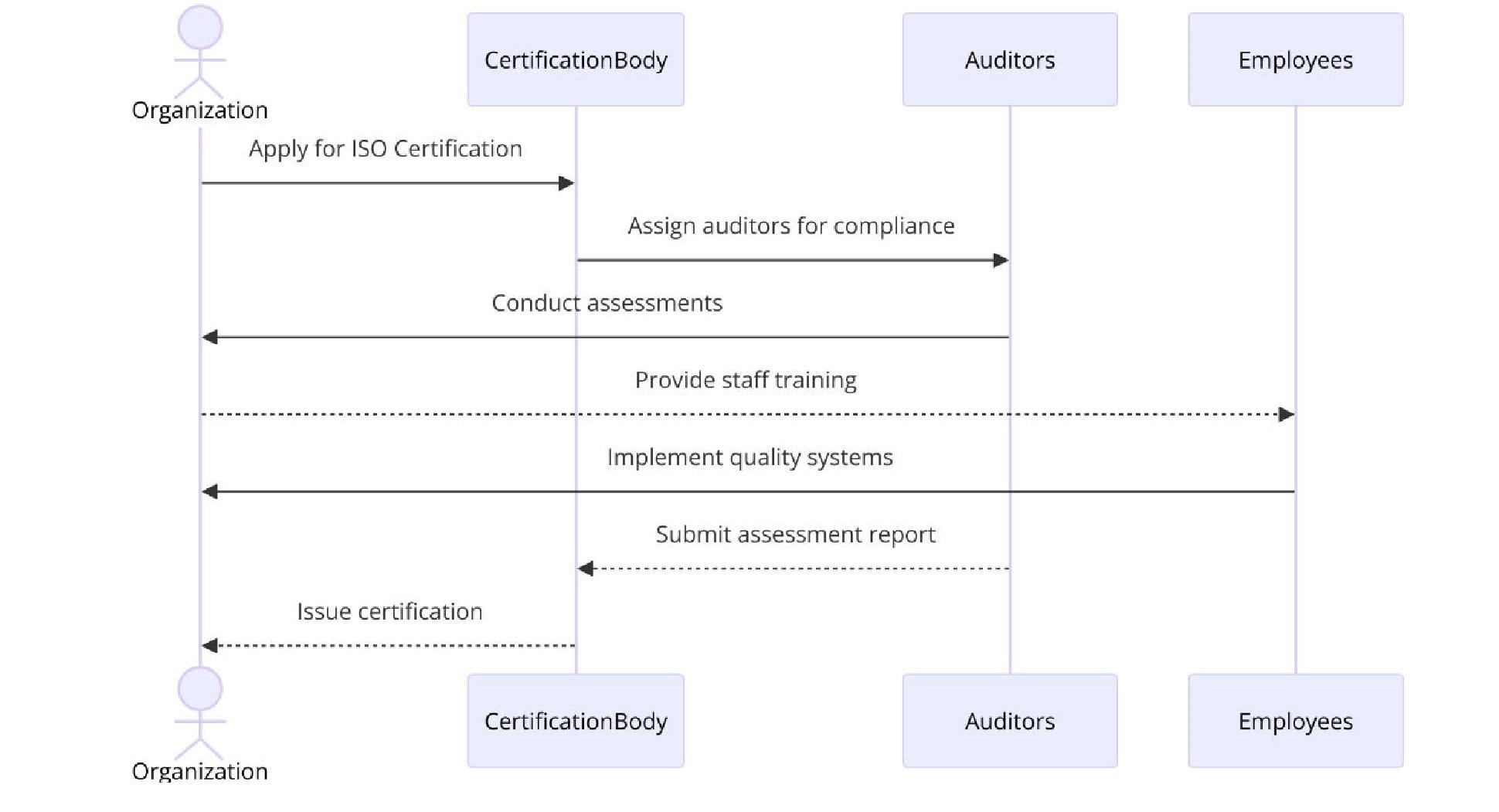
ISO 9001: Quality Management System (QMS)
Quality Policy and Objectives: Establish and communicate a clear quality policy and measurable quality objectives aligned with customer expectations and business goals.
Documented Processes: Develop and maintain documented procedures for all travel-related processes to ensure consistency and traceability.
Customer Feedback Management: Implement systems to gather, analyze, and act on customer feedback for continuous improvement.
Risk-Based Thinking: Identify potential risks and opportunities in operations and address them proactively.
Internal Audits: Conduct regular internal audits to ensure processes meet quality standards and identify areas for improvement.
Leadership Commitment: Top management must demonstrate commitment to quality management by providing resources and promoting a customer-centric culture.
Continuous Improvement: Use tools like root cause analysis and corrective actions to address non-conformities and improve processes.
ISO 27001: Information Security Management System (ISMS)
Information Security Policy: Develop and maintain a comprehensive information security policy.
Risk Assessment and Treatment: Identify, analyze, and mitigate risks to information assets through a systematic risk management process.
Access Controls: Implement role-based access controls to ensure only authorized personnel can access sensitive data.
Incident Management: Establish procedures for detecting, reporting, and responding to security incidents.
Asset Management: Maintain an inventory of all information assets and classify them based on their sensitivity and importance.
Regular Audits: Conduct internal and external audits to ensure compliance with the ISMS.
Awareness Training: Train employees on cybersecurity best practices and the importance of data security.
Backup and Recovery Plans: Implement systems for secure data backup and recovery in case of data loss or breaches.
ISO 14001: Environmental Management System (EMS)
Environmental Policy: Establish an environmental policy that reflects the organization’s commitment to sustainability.
Identification of Environmental Aspects: Identify how the organization’s activities impact the environment, such as carbon emissions from travel or paper usage.
Legal and Regulatory Compliance: Ensure compliance with environmental laws and regulations.
Resource Efficiency: Implement measures to reduce energy consumption, waste generation, and resource usage.
Environmental Objectives and Targets: Set measurable objectives for reducing environmental impacts and monitor progress.
Monitoring and Reporting: Regularly monitor environmental performance and maintain records of compliance.
Employee Training: Provide training on environmental management practices and sustainability initiatives.
ISO 45001: Occupational Health and Safety Management System (OH&S)
OH&S Policy: Develop a policy to ensure health and safety at the workplace and during travel-related activities.
Hazard Identification and Risk Assessment: Identify potential hazards associated with corporate travel and mitigate them through appropriate controls.
Emergency Preparedness: Establish emergency response plans for travel-related incidents such as accidents or health emergencies.
Legal and Regulatory Compliance: Adhere to applicable health and safety laws and regulations.
Consultation and Participation: Engage employees in identifying risks and developing safety measures.
Incident Reporting and Investigation: Create a system for reporting and investigating workplace and travel-related incidents to prevent recurrence.
Monitoring and Audits: Regularly assess OH&S performance through internal audits and take corrective actions as necessary.
ISO 22301: Business Continuity Management System (BCMS)
Business Impact Analysis (BIA): Identify critical travel services and assess the impact of potential disruptions.
Continuity Plans: Develop and maintain business continuity plans to ensure minimal disruption to operations.
Risk Assessment: Identify threats such as natural disasters, cyberattacks, or pandemics, and implement risk mitigation strategies.
Incident Response: Establish clear procedures for responding to disruptions in a timely and efficient manner.
Testing and Exercises: Regularly test business continuity plans to ensure their effectiveness.
Leadership Commitment: Senior management must demonstrate support for business continuity initiatives.
Pacific Certifications ensures a seamless certification journey. Our expert auditors assess your current processes against ISO standards and issue the required certifications after successful compliance. We are here to help your organization achieve excellence and sustainability in corporate travel services.
Looking to boost customer trust and operational efficiency through ISO certification? Reach out to us at [email protected] or dial +91-8595603096 to get started today!
Benefits of ISO Certifications for Corporate Travel Services
Adopting ISO certifications for corporate travel services brings numerous benefits, transforming how organizations operate and deliver value.
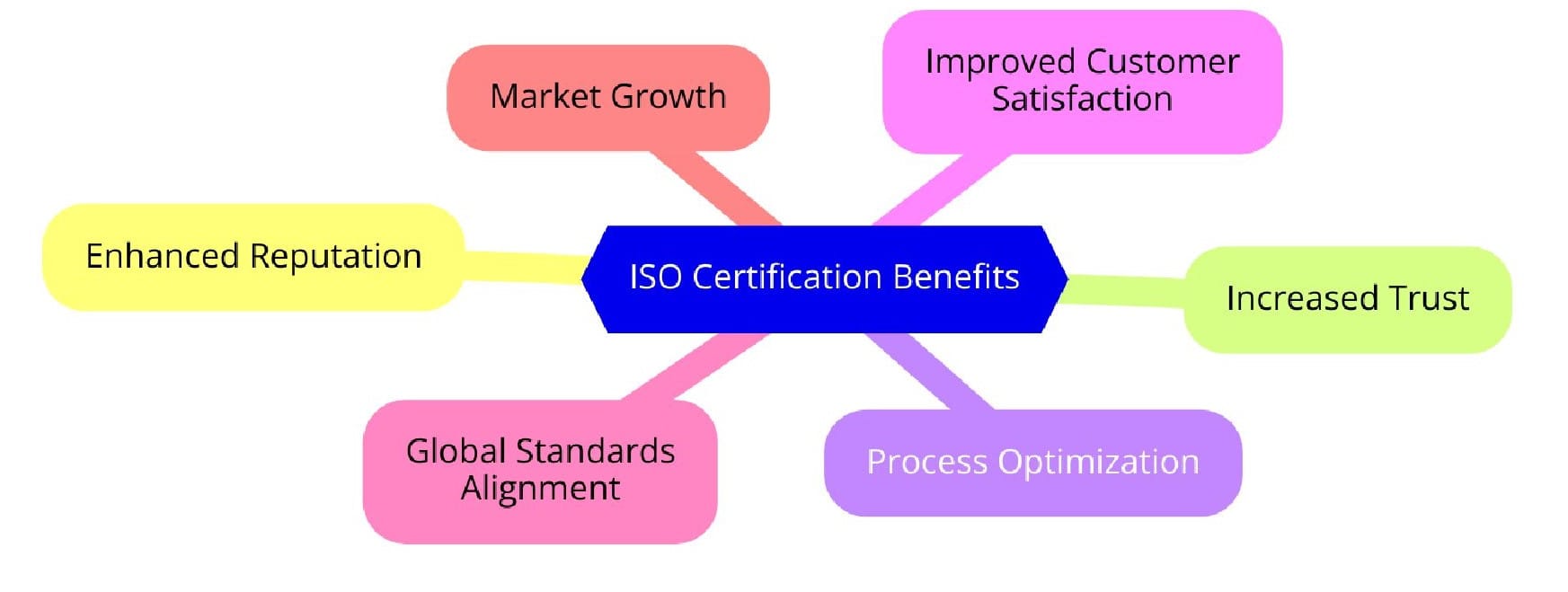
Customer Satisfaction: ISO standards like ISO 9001 ensure consistent service quality, leading to improved customer trust and satisfaction.
Operational Efficiency: Streamlined processes and effective resource management are direct outcomes of ISO certification.
Risk Management: ISO 31000 and ISO 27001 enable organizations to proactively identify and mitigate risks, safeguarding both operations and data.
Compliance and Credibility: ISO certifications demonstrate a commitment to compliance with industry standards, enhancing your organization’s credibility.
Sustainable Practices: ISO 14001 and ISO 20121 help organizations reduce their environmental impact, aligning with global sustainability goals.
Competitive Advantage: ISO certifications set your corporate travel services apart from competitors by showcasing your dedication to quality and innovation.
Employee Satisfaction and Safety: With ISO 45001, organizations ensure a safer and healthier work environment, boosting employee morale and productivity.
Cost Savings: Efficient workflows and risk management lead to reduced operational costs over time.
Business Continuity: ISO 22301 prepares organizations to handle unexpected disruptions, ensuring seamless service delivery.
Global Recognition: ISO certifications are globally recognized, opening doors to international partnerships and opportunities.
The corporate travel industry this year is poised for significant transformation. According to a report by Deloitte, companies are increasingly prioritizing sustainability and digital innovation in their travel policies. Trends such as carbon footprint tracking, AI-driven travel planning, and hybrid business events are reshaping the industry.
Additionally, compliance with international standards like ISO 14001 and ISO 27001 has become a key differentiator for travel service providers. Businesses are now seeking partners that align with their corporate social responsibility (CSR) goals, making ISO certifications an essential investment for long-term growth and relevance.
At Pacific Certifications, we are dedicated to helping you navigate the certification process with ease. Contact us today to learn how we can support your journey toward ISO compliance.
Pacific Certifications is accredited by ABIS, in case you need support with ISO certification for your Corporate Travel Services business, please contact us at [email protected] or +91-8595603096.
FAQs: ISO Certifications for Corporate Travel Services
What is the purpose of ISO certifications for corporate travel services?
ISO certifications provide a standardized framework for improving quality, security, sustainability, and operational efficiency in corporate travel services.
Which ISO standards are most relevant to corporate travel services?
Key standards include ISO 9001 (Quality Management), ISO 27001 (Information Security), ISO 14001 (Environmental Management), and ISO 45001 (Occupational Health and Safety).
How long does it take to achieve ISO certification?
The timeline varies depending on the organization's preparedness and the standard being implemented. On average, it can take several weeks to months.
Can Pacific Certifications help with ISO implementation?
Pacific Certifications specializes in audits and certification issuance but does not provide consultancy, training, or implementation services.
Why is ISO 27001 important for corporate travel services?
ISO 27001 ensures the protection of sensitive data, such as traveler information and payment details, through robust information security practices.
What are the costs associated with ISO certification for corporate travel services?
The cost depends on factors like the size of the organization, the scope of certification, and the specific ISO standard being pursued.
Read More at: Blogs by Pacific Certifications
